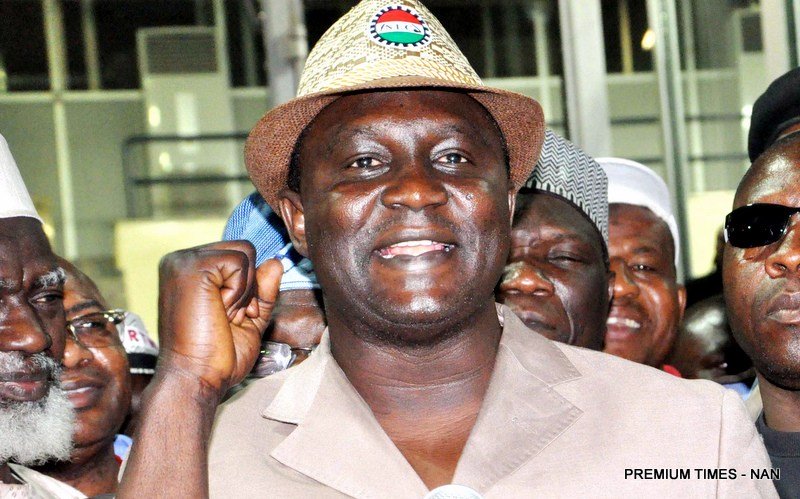- Fuel Supply Threatened as Oil Workers Join Strike
The supply and distribution of petroleum products across the country are under threat as the Nigeria Union of Petroleum and Natural Gas Workers and the Petroleum and Natural Gas Senior Association have joined the strike ordered by the Nigeria Labour Congress.
The NLC on Wednesday directed all its members and affiliate unions to commence a nationwide strike on Thursday, following the failure of a meeting with the Minister of Labour and Employment, Chris Ngige, in Abuja on Wednesday, to produce the expected outcome.
The NLC President, Ayuba Wabba, said the industrial action would commence due to the refusal of the Federal Government to reconvene the meeting of the Tripartite National Minimum Wage Committee to enable it to conclude its work.
A NUPENG spokesperson, Mr Adamson Momoh, told one of our correspondents on Thursday, “We are part of the United Labour Congress; so, any decision that they take, we will abide by it.”
The National Public Relations Officer, PENGASSAN, Mr Fortune Obi, said the association had been directed to join the ongoing strike.
He stated, “PENGASSAN is an affiliate of the Trade Union Congress; so, the directive is that we should join the strike, and after the Central Working Committee meeting, the CWC has issued the same directive as the TUC to our members.
“We will manage the protest technically; there is nowhere in the world where you will abruptly stop oil production. It is a process. So, even if our members are joining, which is to respect the directive from our principals, it is something that must be done systematically.
“We have our members in different departments and areas; some are in essential duties area, and they will continue to deliver their duties.”
A spokesman for the Nigerian National Petroleum Corporation was quoted by Reuters as saying that he had seen no evidence that the strike by the organised labour had had any impact on oil operations.
Meanwhile, the organised labour on Thursday faulted the Federal Government’s proposal to reconvene the minimum wage negotiation committee next week, saying that the tripartite panel had concluded its assignment, but that government had refused to come up with its own minimum wage figure.
Speaking in Lagos for the organised labour, Amaechi Asugwuni of the National Union of Civil Engineering Construction, Furniture and Wood Workers said embarking on the seven-day warning strike was to enforce the position of the national executive councils of all the organs and labour centres in the country.
He stated, “It is so disheartening that the Federal Government that is the convener of the tripartite national committee, up to this moment, has failed to come up with its figure. Whether they like it or not, they must come up with a new figure, and it must be brought to the table of the tripartite committee.
“We will get to the end of the matter, which is for us to engage the government in a struggle and ensure that a new minimum wage is declared. The last review of the minimum wage in Nigeria was in 2011 and by law, it is supposed to be reviewed every five years.
“That really tells you how patient we can be, but it appears the government is taking us for a fool. That is why we have decided on the need to get down and lock down the economy of this nation, if that is what it takes before the government can get it right.”
The President, Association of Senior Staff of Banks, Insurance and Financial Institutions, Mrs Oyinkan Olasanoye, said, “The minimum wage issue did not just begin today, so it is very disappointing that the government has unnecessarily delayed its implementation.
“We are too humane enough to allow the committee to wait till now. The issue of minimum wage is to allow Nigerians to pay bills. It is when we have power to purchase and pay bills without issues that the productivity and Gross Domestic Product of the economy will receive a boost. We will not be tired; we will keep on struggling until we get there.”

 Naira4 weeks ago
Naira4 weeks ago


 Naira4 weeks ago
Naira4 weeks ago


 Naira3 weeks ago
Naira3 weeks ago


 News4 weeks ago
News4 weeks ago
 Travel4 weeks ago
Travel4 weeks ago




 Naira4 weeks ago
Naira4 weeks ago


 Jobs3 weeks ago
Jobs3 weeks ago
 Naira3 weeks ago
Naira3 weeks ago






















